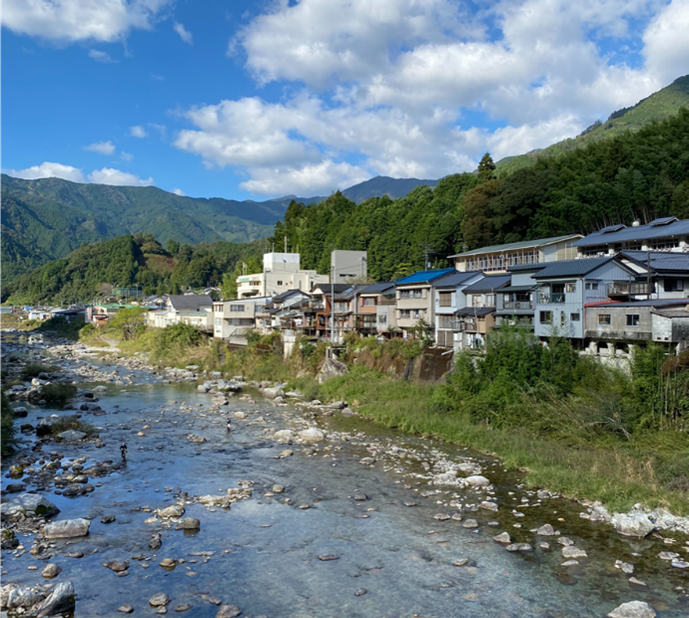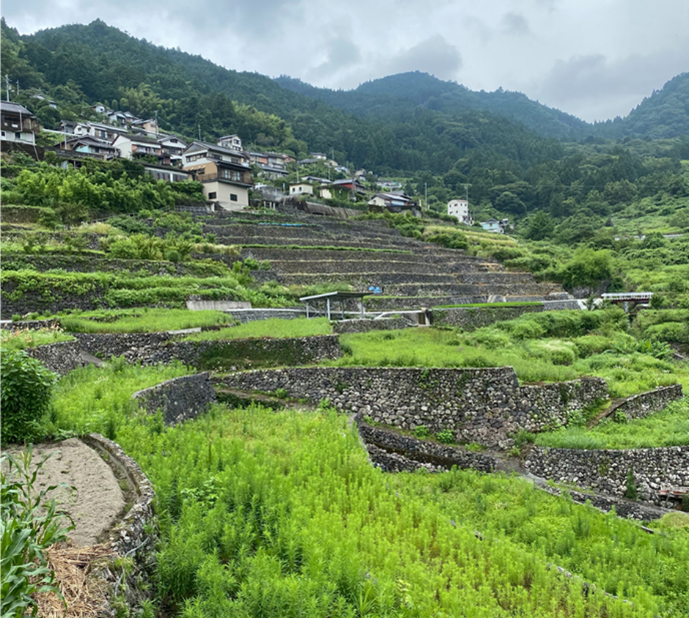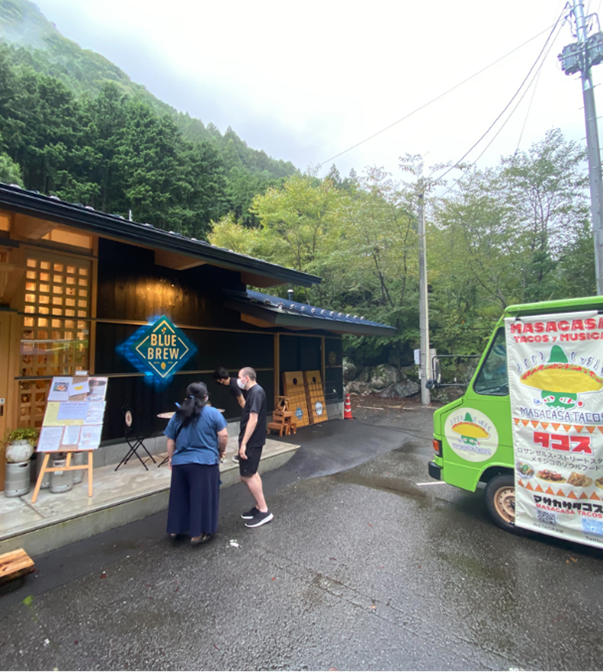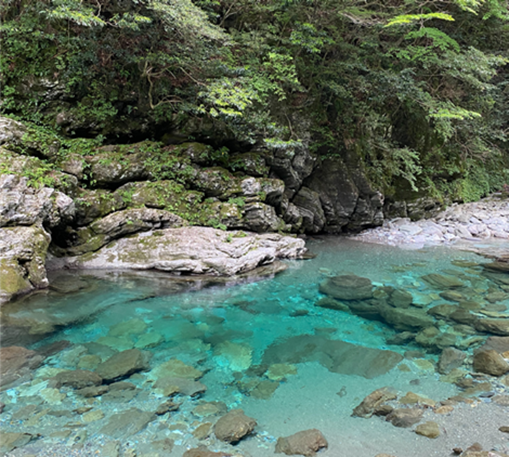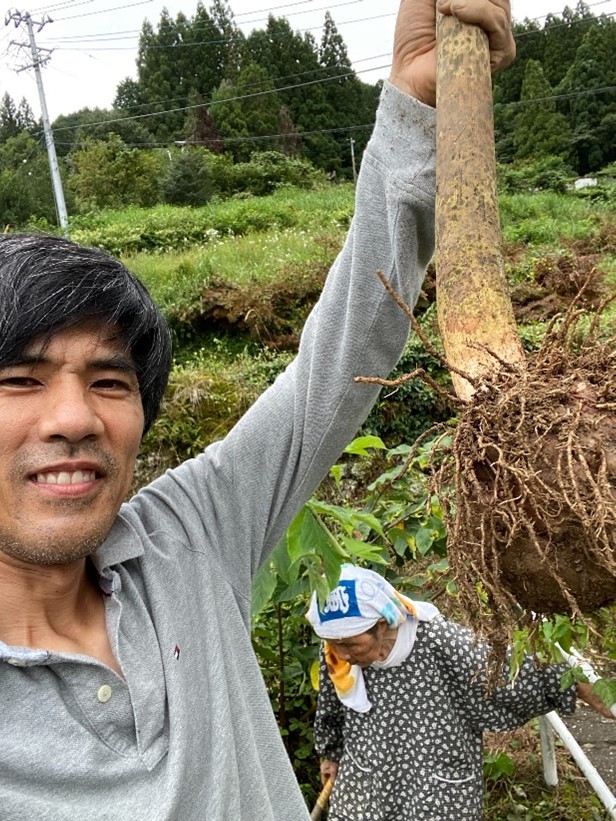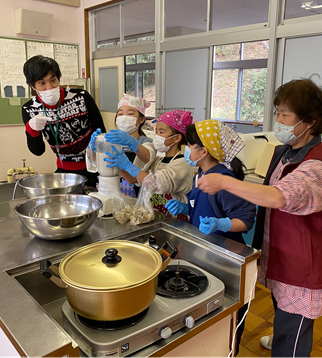by Bobby Okinaka
My name is Bobby Okinaka. I am 52. I am an American, but a long-time resident of Japan. In April, 2021, I moved with my wife and young son from Tokyo to the middle of Shikoku Island. This place is called Niyodogawa-cho. It is a region of many steep mountains and clear blue rivers. The town is actually a number of smaller towns joined together to reduce administrative costs known as the gappei system. Today, its population is 4,968. The main industries are logging and tea. At one point, its peak was 26,000. There was a copper mine that has since closed. And on the sides of the mountains that got the most sun, they grew the paper mulberry plants for washi paper. Today, there is only one paper maker left.
Copyright Bobby Okinaka 2021
How did I end up in Niyodogawa-cho? A few years earlier, a friend of mine from university moved here from California to open a craft beer brewery. Located deep in the mountains, it’s safe to say his beer has the most naturally pure water in Japan. Since the birth of my child, I had been looking for an opportunity to live in the countryside. I think it’s a good life for little children and it would be better for our health as well. When I visited my friend, I was introduced to some people from the town office and they let it be known that I could apply for the Regional Revitalization Corp (Chiiki Okoshi Kyorokutai). So I went back to Tokyo, packed everything up, and we started our new life in the countryside.
Copyright Bobby Okinaka 2021
My role is to do activities that enrich the town is some manner. They asked me to teach English at the local schools and support various town activities, but for the most part it’s up to me to find my mission and ideally, a way to make a living, so that I will continue to live here after my three year stint is up. Initially I thought about working with tourism. I thought it would be nice to open a guest house. The major attraction in this area is the tranquil color of the river water they call, “Niyodo Blue.” We are only an hour from Kochi City, so it is easy for visitors to come here and play in the river. I am also interested in sustainability. So I started composting. In the spring I am looking forward to experimenting with growing vegetables with microbes. I hope to start a community composting program. I learn everything about composting and gardening from YouTube.
The internet has changed country living. 30 years ago, I lived in another rural area of Japan as a member of the JET Program. Back then I felt very isolated. Today, I feel like life in the countryside is not much different from the city. I can buy everything I need online. I can get my favorite American television shows. I can communicate easily with family and friends. Of course there are some inconveniences, especially the lack of restaurants, sporting events, museums and live concerts. But I can exchange that for riverside barbecues, gardening and camping. And instead of seeing stars on a stage, I can see real stars in the night sky.
Copyright Bobby Okinaka 2021
Together with one of my coworkers, we started an oral history program. We interview people from the community and record their life stories. Our goal is to create an exhibition about a small town in Japan. We will combine their voices with an examination of rural problems and the regional revitalization strategy. We will also imagine the future through the lens of sustainability. About sustainability, I believe the solution for many global problems can be found in the countryside, albeit on a small scale. Farmers can change their practices to build healthy soil. It will increase water holding capacity and end the use of chemical fertilizers that wash into the oceans. Healthy soil means that more carbon can be sequestered into the earth. Healthy soil means that the fruits and vegetable are rich in nutrients and full of flavor. Also, the countryside has the promising potential to be an energy solution. They have the space for renewable energy production. The costs are getting cheaper, the technology is proven. If the rural regions make clean electricity to meet the demands of power-hungry cities, they will never be short of funds again. With all our mountains and rivers, this place is an ideal condition for micro hydropower.
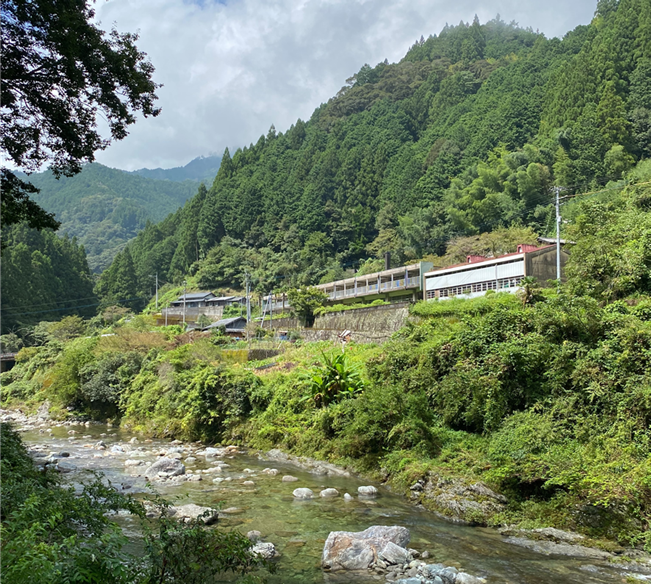
Copyright Bobby Okinaka 2021
I hope to show our exhibition in cities around Japan to challenge the common perceptions of the countryside. People say the countryside is dying; I say it is full of opportunity and this is a way to show them. In addition, using my connections in North America, I hope to bring the exhibition to Los Angeles and Toronto. We may be a small town, but I think our story is worth sharing, much like this website. After the exhibition, rather than start a guesthouse, I have a big idea to convert a vacant schoolhouse into a campus for university students. They can come to the countryside and do remote learning. The added value will be that we can provide daily English lessons. There will be an organic farm for students to grow the food they will eat. The students can volunteer in the community as farm help, coach sports to the local kids or help the seniors. In exchange the seniors can pass along their knowledge such as traditional dance, woodworking and cooking. The facility will be powered by a micro hydropower turbine and solar panels. Hopefully, this idea can become a reality. After the global pandemic, please come and visit Niyodogawa-cho and let’s have a craft beer by the river!
Bobby Okinaka is a member of the Chiiki Okoshi Kyoryokutai Program in Niyodogawa-cho, Kochi Prefecture. He is on a three-year mission to help revitalize the Japanese countryside. You can find him on Instagram at slowinjapan. For tourism information about our area, please visit: https://niyodoblue.jp/en/ Domo!

